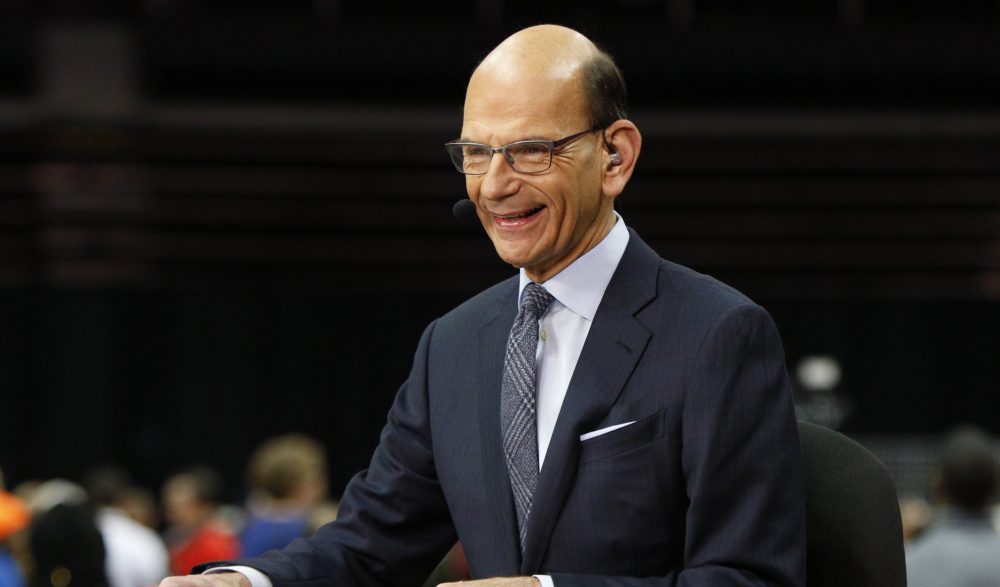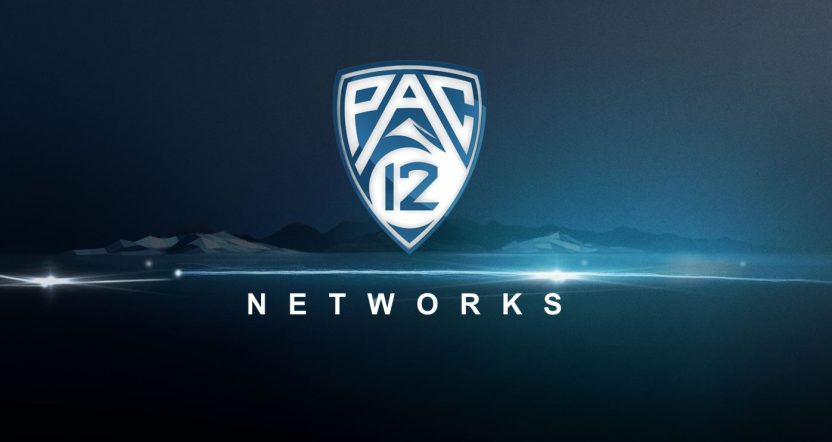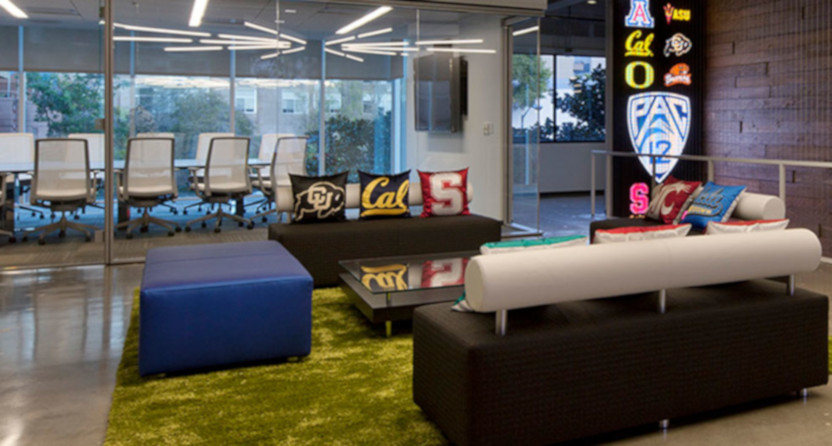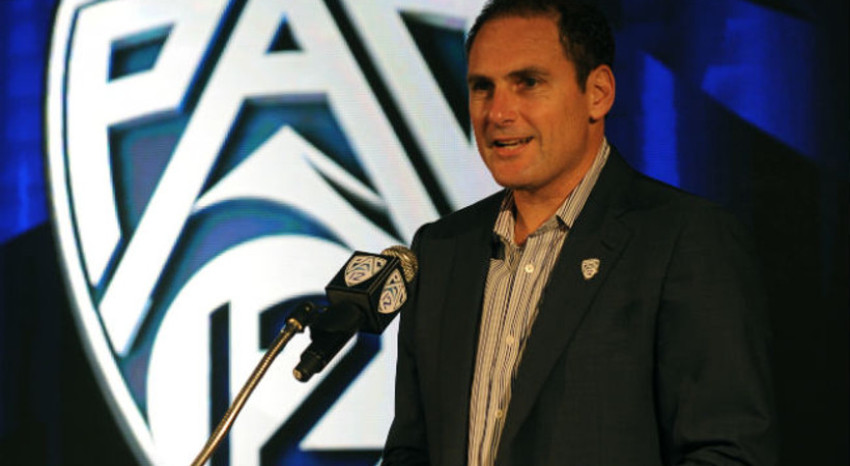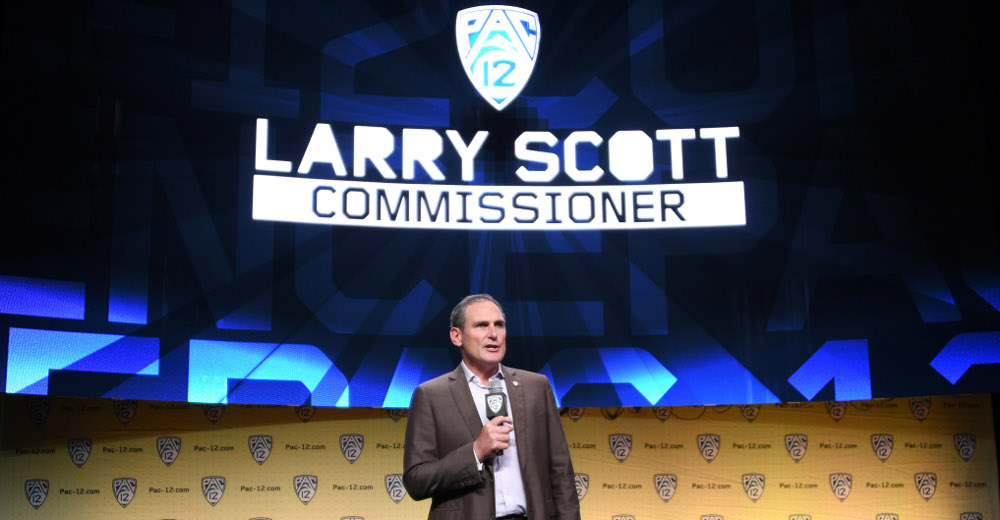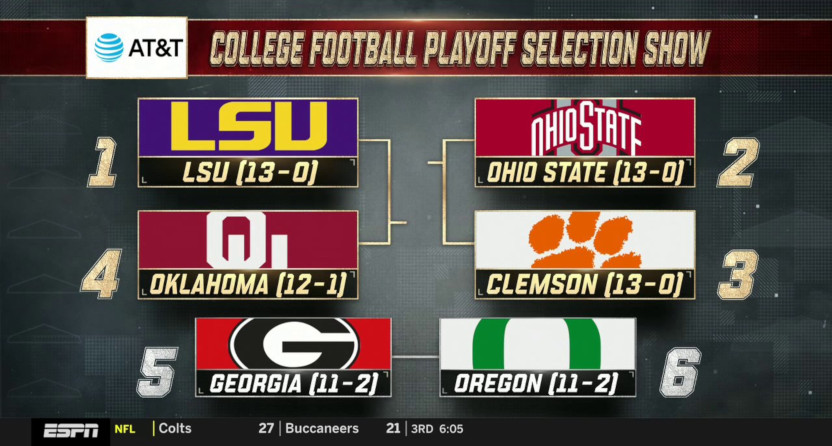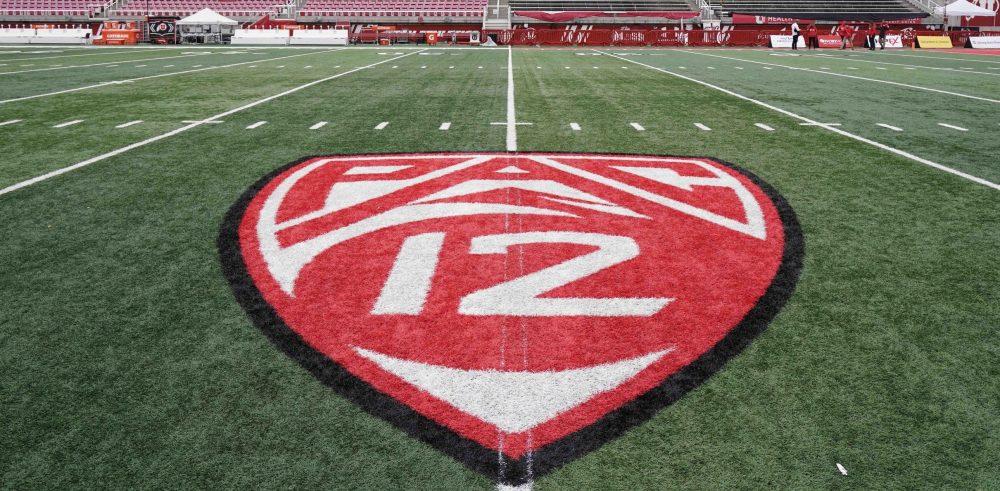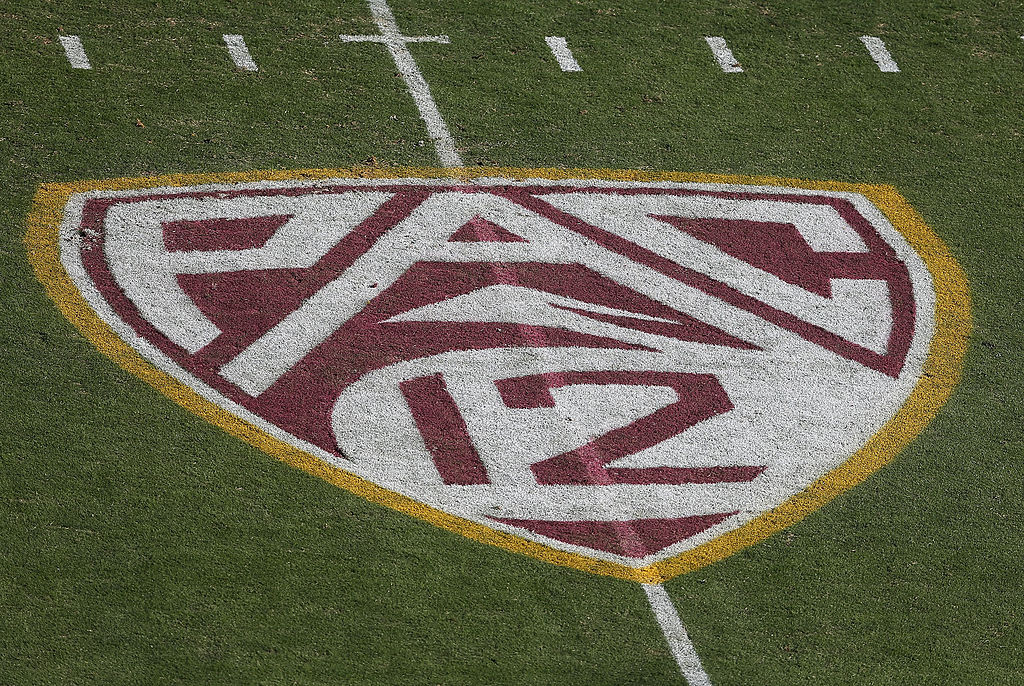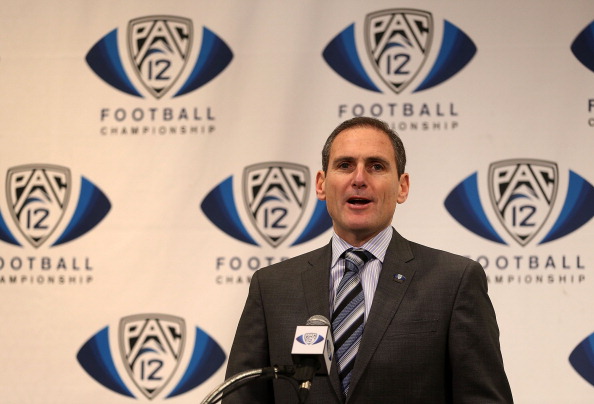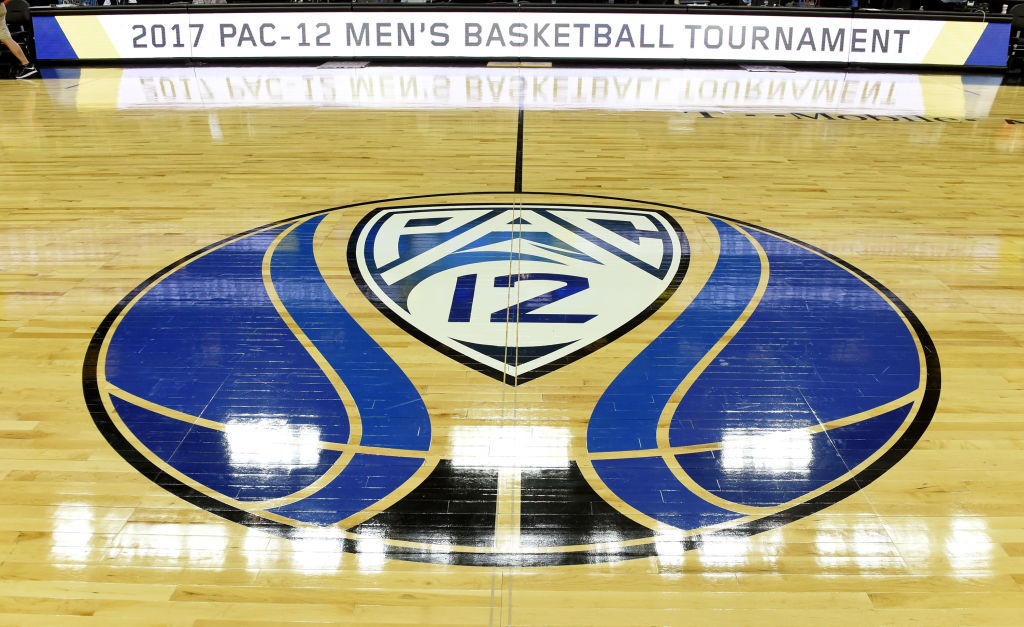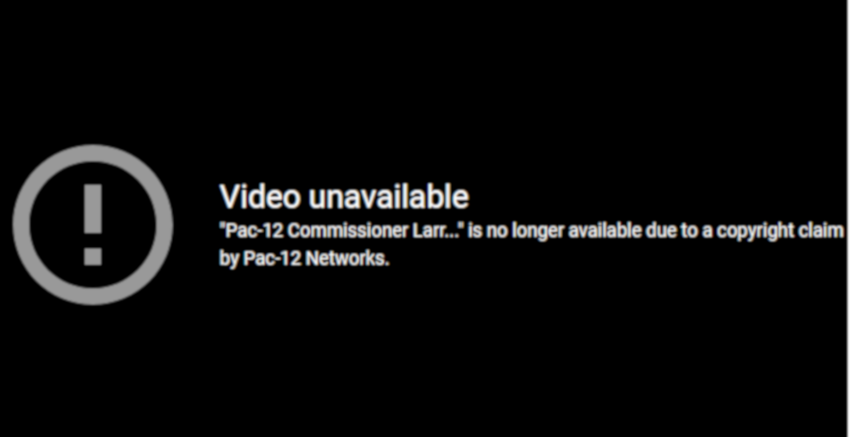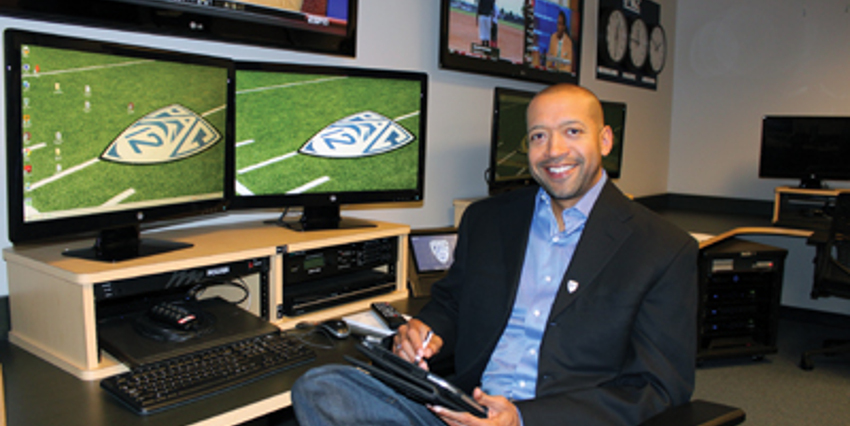Archives
Larry Scott’s past gambles cost the Pac-12 its future
Paul Finebaum doubts Pac-12 will survive three more years: ‘The situation is so fragile’
"I do not believe the Pac-12 can exist"
Larry Scott has made more than $50 million from the Pac-12, which is saving more than $6 million annually without him
Ex-Pac-12 Network executives file wrongful termination lawsuit
Two former Pac-12 Network executives filed a lawsuit earlier this week in a San Francisco Superior Court for wrongful termination.
Pac-12 shift from San Francisco office to work-from-home projected to save each member university $7 million over the next decade
The conference was paying $696,000 per month for its San Francisco office, as per John Canzano.
Outgoing commissioner Larry Scott says “hindsight is great” on Pac-12 Networks distribution failures
Larry Scott, unsurprisingly, still doesn't get it.
Larry Scott finally out as Pac-12 commissioner
What does this mean for the future of the Pac-12 Network and the conference's TV deals?
The Pac-12’s biggest issue is a lack of recent football success, and that’s hard to fix with a consultant or a commissioner
While the Pac-12's move to look at bringing in an external consultant feels logical and may fix some of the conference's issues, its biggest problem is its football struggles. And those can't be fixed by the central league office.
Pac-12 CEOs may hire a consultant reporting to them, not Larry Scott, and that could lead to a structural overhaul
Some changes could be ahead at the Pac-12.
Pac-12 Networks let go of entire digital team as part of another round of furloughs and layoffs
Nearly 100 people were either laid off or furloughed.
Pac-12 examines conference-wide loan for athletic departments, through The Raine Group, which led their private equity proposal
A loan against future media rights might make some sense for some Pac-12 members, but there are some questions remaining here.
Pac-12 Networks to reduce workforce by eight percent amidst COVID-19 crisis, implement hiring freeze and executive paycuts
Pac-12 cuts include laying off around 12 full-time Pac-12 Networks staffers, implementing a hiring freeze at both the networks and the conference, and reducing the salaries of commissioner Larry Scott and senior staffers by 20 and 10 percent respectively.
Pac-12 Networks to drop to one on-site produced event this spring: “The vision for the network has slowly died.”
“A lot of people behind the scenes believed in the conference’s message four years ago and we’ve watched as the vision for the network has slowly died.”
The Pac-12 is no longer interested in selling a media rights stake to private equity firms
A strategic partnership with a media or tech company remains possible going forward, though.
Pac-12 Networks project a six percent drop in revenue, flat per-school distributions still below their initial worst-case projection
The Pac-12 Networks' total revenue is expected to drop six percent ($8.1 million) year-over-year in 2019, with net advertising revenue falling 22 percent and digital revenue plummeting 30 percent.
It sounds like the Pac-12 ADs have figured out Larry Scott and his $7,500/night hotel suite are more sizzle than steak
Scott's pricey hotel room in Vegas is just the latest negative story about him.
Former hedge fund manager: Pac-12’s proposed equity terms (10 percent for $500 million) are “probably not going to happen”
The Pac-12's valuation of $5 billion for the conference (so $500 million for a 10 percent share) appears quite optimistic, according to a long-time hedge fund manager asked to evaluate it.
Pac-12 hires PR firm, which should definitely solve all their problems
The Pac-12 has reportedly hired a top PR firm in its latest effort to convince everyone that everything’s...
Larry Scott wants to sell 10% of the Pac-12 to private investors
The Pac-12’s revenue issues aren’t a secret. The Pac-12 Network has languished, struggling to reach a distribution deal...
Oregonian columnist publishes video of Larry Scott announcing his extension, Pac-12 Networks gets it yanked over copyright claim
The Pac-12 looks even worse after using copyright claims to take this video down.
Pac-12 general counsel inadvertently overturned a targeting call, was snarked in official’s report, Yahoo report led to process shakeup
Pac-12 commissioner Larry Scott said general counsel Woodie Dixon, who is not a trained official, thought he was only giving his opinion. Officials interpreted that as a directive.
Pac-12 commish Larry Scott defends conference’s late night games in spite of much consternation
"We give them a whole other window of high-quality, highly rated games. ... Playing more night games than we did in the past unlocked the kind of value our schools were looking for."
Larry Scott says Pac-12 Networks have no DirecTV progress, AT&T U-Verse might drop them. Should they try part of the “Ballers” plan?
The Pac-12 Networks' carriage issues might get even worse if AT&T U-Verse drops them.
Commissioner Larry Scott isn’t optimistic about getting Pac-12 Networks on DirecTV
Scott said he doesn’t see the situation changing any time soon.

